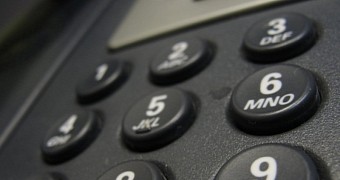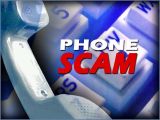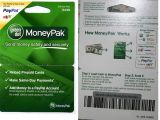Scams conducted over the phone have been recorded with increased frequency lately, with fraudsters posing as agents from the Internal Revenue Service in an attempt to extort money from US citizens.
In many cases, they leave more than one voice message to the victim and then try calling at a later time, since the holiday season is the part of the year when people are more susceptible to falling for their tricks.
Some signs of fraud can be spotted
This type of scams is not too different from tech support ones, as Jerome Segura from Malwarebytes also says, the difference consisting in the way the victim is approached and determined to pay money over the phone.
During the call, the scammers follow a well-known pattern, where the recipient is informed of a tax problem, which can be easily solved if the code of a prepaid voucher is sent to the caller.
Segura says that the crooks are operating from boiler rooms and make thousands of calls each day, which would make the fraud attempt easier to spot based on the phone number and deficient pronunciation.
Judging from the transcript of the call between the researcher and the fraudster, clues can also be picked up during the conversation. However, the ultimate sign of a deceit is when the user is asked to purchase a money voucher and provide the code over the phone in order to solve the problem with the IRS, since the institution would never ask for payment this way.
A 7/11 is not a “government authorized store”
According to Segura’s blog post, the scammer attempts to make the issue appear as unsolvable as possible, and multiple bogus violations may be presented.
Moreover, the recipient of the call is informed that the conversation is monitored by the IRS, local authorities and one patrolling officer, whose responsibility is to place the alleged tax embezzler under arrest.
Nevertheless, all trouble can be allegedly averted with a visit to a retailer nearby and the purchase of a money voucher (MoneyPak or Green Dot) for paying the IRS penalty. The entire operation has to be completed quickly and without disconnecting the call, muting the conversation, or putting it on hold.
The crooks do their best for the con to work, and in the case of Segura, they even suggested some “government authorized stores,” such as Kroger and 7/11, for getting the voucher. This also suggests that they are familiar with the US retailers the victim is most likely to go to.
Even if these activities can be reported to the IRS and the FTC, catching the fraudsters is not an easy thing to do, because they use VoIP service that can be easily discarded, Segura says. Moreover, the use of prepaid vouchers ensures anonymity of the money transaction. Another hurdle is the fact that they carry out the fraud from overseas.

 14 DAY TRIAL //
14 DAY TRIAL // 



